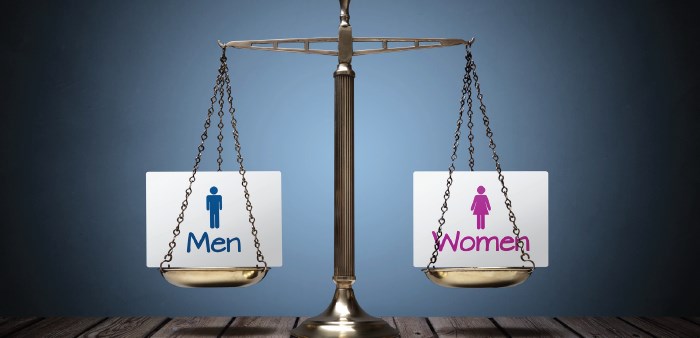
FROM OUR MANAGING PARTNER
Spring 2016 Newsletter
FROM OUR MANAGING PARTNER
Spring 2016 Newsletter
While it seemed like Spring took its time taking hold across the region, there was no slowdown with the constant evolution of regulations and legal matters. In this issue of the Golan & Christie newsletter, we share recent developments in the following areas:
NEW PUBLIC NOTICE REQUIREMENT

Effective January 1, 2016, certain business and establishments
are required to post a new notice in connection with human
trafficking and slavery prevention. Learn if this Act impacts
your business and what exactly is required.
EMPLOYMENT ALERTS

We provide you important information on three major
issues now facing employers:
- A new rule changes which employees qualify as “exempt”
from overtime pay. - The use of medical marijuana in the workplace.
- Potential liabilities and risks for Illinois employers
resulting from the Illinois’s Firearm Concealed Carry Act
(FCCA).
IP LAW ALERTS

Read highlights of what we learned at the 60th Annual
Intellectual Property Law Conference. Sponsored by John
Marshall Law School, the February gathering featured
speakers from around the world conference with in-depth
analysis of recent decisions and future trends.
In this newsletter you’ll also find information on a proposed revision to the Employer Information Report (EEO-1) that would require certain employers to report pay rate data. We also welcome our new associate, Jonathan Morton, and congratulate David Saltiel.
Please know that we appreciate and value the relationship we maintain
with you. If there is anything you ever need or want to discuss, our
attorneys are just a phone call or email away.
Stephen L. Golan
SHE WORKS HARD FOR THE MONEY
EEOC’s Proposed Pay Reporting Rules Designed to Thwart Discriminatory Payment Practices
“The EEOC’s proposed rule appears to be an expansion of the OFCCP’s proposal and a single component of a greater effort by the executive branch.”
SHE WORKS HARD FOR THE MONEY
EEOC’s Proposed Pay Reporting Rules Designed to Thwart Discriminatory Payment Practices
At a White House event on January 29, 2016, the U.S. Equal Employment Opportunity Commission (“EEOC”) announced a proposed revision to the Employer Information Report (EEO-1). Under the proposed rule, certain employers will be required to report pay rate data. The proposed rule—announced on the seventh anniversary of the Lilly Ledbetter Fair Pay Act—aims to assist the agency in identifying discriminatory pay practices and promoting equal pay practices.

The EEO-1 reporting requirements apply to private employers (including federal contractors) with more than 100 employees. These employers must submit certain workforce profile information; specifically, employers must disclose demographic data concerning employees’ race, ethnicity, and sex by job category. The proposed requirements would take effect in 2017, and require these large employers to include employees’ pay and hours worked on the EEO-1 form.
The proposed rule is a result of a concerted interagency effort to combat discriminatory pay disparities. Six years ago, the President’s National Equal Pay Task Force proposed a coordinated study by the EEOC and the National Academy of Sciences (“NAS”) to determine the most effective means to collect pay data and thwart wage discrimination. At the conclusion of the study, the EEOC and the Office of Federal Compliance Programs (“OFCCP”) of the Department of Labor developed a plan to collect compensation data. In 2014, President Obama released a memorandum titled “Advancing Pay Equality through Compensation Data Collection.” That report directed the Secretary of Labor to create a compensation collection proposal. The OFCCP issued a proposed rule that would require federal contractors to include hours worked and compensation information in their EEO-1 disclosures. The OFCCP requested compensation information similar to what is available on a W-2, but categorized by age, sex, ethnicity and job type. The EEOC’s proposed rule appears to be an expansion of the OFCCP’s proposal and a single component of a greater effort by the executive branch. Indeed, the EEOC Notice articulates an objective “to improve interagency coordination.”
The EEOC and OFCCP will review and analyze compensation disclosures according to pay ranges and hours worked to detect discrepancies across industries and occupations. The proposed reporting requirements would allow both agencies to more effectively target and combat discriminatory payment practices. Although the proposed rules will not take effect until 2017, it is important to note that equal pay is a hot topic issue. Employers, especially larger employers subject to EEO-1 reporting requirements, should be mindful of their payment practices and consider internal audits to uncover any potentially discriminatory practices.
REGARDING VICTIMS OF SLAVERY & HUMAN TRAFFICKING
New Public Notice Requirement for Certain Businesses and Establishments
“If another language is most widely spoken in the county where the business is located, the notice must also be printed in such third language.”
“Although the Act defines a few of the above establishments, many are ambiguous and left to the reader’s interpretation.”
REGARDING VICTIMS OF SLAVERY & HUMAN TRAFFICKING
New Public Notice Requirement for Certain Businesses and Establishments
Effective January 1, 2016, certain business and establishments are required to post a new notice in connection with human trafficking and slavery prevention. Affected businesses must post the notice in a conspicuous place near its public entrance or in clear view of the public and employees on its premises. If a business fails to post the new notice, it is subject to a $500 penalty for a first time offense and $1,000 for each future offense.
What is Required?
The required notice must be at least 8.5 by 11 inches with 16-point font and state the following: “If you or someone you know is being forced to engage in any activity and cannot leave, whether it is commercial sex, housework, farm work, construction, factory, retail, or restaurant work, or any other activity, call the National Human Trafficking Resource Center at 1-888-373-7888 to access help and services.
Victims of slavery and human trafficking are protected under United States and Illinois law. The hotline is:
- Available 24 hours a day, 7 days a week.
- Toll-free.
- Operated by nonprofit nongovernmental organizations.
- Anonymous and confidential.
- Accessible in more than 160 languages.
- Able to provide help, referral to services, training, and general information.
In addition, the notice must be printed in English and Spanish. If another language is most widely spoken in the county where the business is located, the notice must also be printed in such third language.
The Illinois Department of Human Services released a model notice available for download at: www.dhs.state.il.us
What Businesses & Establishments are Required to Post?
Any businesses or establishments in Illinois that are:
- On premise consumption retailer licensees, whose principal business is the sale of alcoholic liquor, primary to the sale of food
- Adult Entertainment Facilities
- Primary Airports
- Intercity passenger rail or light rail stations
- Bus stations
- Truck Stops
- Emergency rooms within general acute care hospitals
- Urgent care centers
- Farm Labor Contractors
- Private job recruitment centers
Although the Act defines a few of the above establishments, many are ambiguous and left to the reader’s interpretation. Without more clarity, a business may be unaware it is required to post the new notice. The limited guidance that is available says the following:
**On Premise Consumption Retailer Licensees. **An “on premise consumption retailer licensee” is a business or establishment that is licensed by the State of Illinois that sells or offers alcoholic beverages for consumption on its premises. Most notably, a bar (serving food only incidental to the service of alcohol) would fall under this classification. On the Illinois Liquor Control Commission’s website, you can search through all liquor licensee records by city and sort by retail license type.
**Adult Entertainment Facility. **The Act references Section 5-10975.5 of the Counties Code to define “Adult Entertainment Facility.” Although definitions may vary on a county level, Illinois state law (55 ILCS 5/5-1097.5) provides an Adult Entertainment Facility is “(i) a striptease club or pornographic movie theatre whose business is the commercial sale, dissemination, or distribution of sexually explicit material, shows, or other exhibitions or (ii) an adult bookstore or adult video store whose primary business is the commercial sale, dissemination, or distribution of sexually explicit material, shows, or other exhibitions.”
**Primary Airport. **As defined by 49 U.S.C. 47102(16), “Primary Airport” means a commercial service airport the Secretary determines to have more than 10,000 passenger boardings each year. To identify Illinois Primary Airports, go to the Federal Aviation Administration’s website and download the most recent Passenger Boarding (Enplanement) at all commercial service airports by rank and sort by state (http://www.faa.gov/airports/planning_ capacity/passenger_allcargo_stats/passenger/).
**Truck Stop. **The Act defines a “Truck Stop” as a privately owned and operated facility that provides fuel, food, shower or other sanitary facilities and lawful overnight truck parking. Although defined, Illinois does not provide a comprehensive list of privately owned and operated truck stops.
**Emergency Rooms within General Acute Care Hospitals. **To identify affected hospitals with emergency rooms, visit the Illinois Health Data Portal at https://data.illinois.gov/ILHealthData and explore the most current licensed hospitals list, filtering by “hospital type.”
**Farm Labor Contractor. **The Act defines a “Farm Labor Contractor” as any person who for a fee recruits, supplies, or hires (or transports in connection therewith) into or within Illinois, any farmworker not of the contractor’s immediate family to work for, or under the direction or control of, a third person or (ii) any person who for a fee recruits, supplies, or hires into or within Illinois, any farmworker not of the contractor’s immediate family and for a fee directs, supervises or controls all or any part of the farmworker’s work or disburses wages to the farmerworker. Farm Labor Contractor does not include full-time regular employees of food processing companies when the employees are not compensated according to the number of farmworkers they recruit. Although defined, there is no centralized source to search for Farm Labor Contractors in Illinois.
**Urgent Care Centers. **Urgent care centers may be identified through insurance websites or internet searches. However, results cannot be relied upon as a complete listing.
**Privately Owned Job Recruitment Centers. **“Privately owned job recruitment centers” are neither defined by the Act nor regulated by a central organization. As such, it is unclear what businesses qualify as “job recruitment centers” or even what a “center” is. It is likely, however, that a temporary staffing agency falls within the ambiguous classification’s scope.
**Bus and Rail Stations. **Likewise, “bus station” and “intercity passenger rail or light rail station” seem like simple classifications but without further clarification, the Act does not differentiate between a “station” and a “stop.” Moreover, since the Act is silent as to the stations’ ownership, we must assume both privately and publicly owned stations are subject to the Act. If you are unsure whether your business or establishment is subject to the Act, it is best to contact an attorney and seek additional information from a local government agency.
WELCOME
Golan & Christie is Pleased to Announce a New Associate!
WELCOME
Golan & Christie is Pleased to Announce a New Associate!
Jonathan D. Morton’s practice focuses on trusts and estate planning, probate, tax controversy and planning, and general corporate and organizational matters. Mr. Morton is licensed to practice law in the states of Illinois and Florida, and before the Internal Revenue Service in Tax Court. Mr. Morton currently serves as the Illinois State Bar Association Federal Tax Section Council liaison to the Internal Revenue Service. Mr. Morton obtained his undergraduate degree in business from the University of Illinois in 2007, and his law degree from Loyola University Chicago in 2013, where he also obtained his certificate in taxation law. During law school he participated in Loyola’s federal income tax clinic and on the school’s moot court team where he was awarded runner-up best brief at
the 2013 National Tax competition in Tampa, Florida. Prior to joining Golan & Christie, Mr. Morton was an associate attorney at DiMonte & Lizak, LLC, in Park Ridge, Illinois.
Saltiel named Best Lawyers' 2016 Entertainment Law
Saltiel named Best Lawyers' 2016 Entertainment Law
Golan & Christie partner, David M. Saltiel, was named Best Lawyers' 2016 Entertainment Law - Motion
Pictures and Television "Lawyer of the Year" for Chicago. Only a single lawyer in each practice area in
each community is selected as a "Lawyer of the Year."

New Rule Changes Which Employees Qualify As “Exempt” From Overtime Pay
New Rule Changes Which Employees Qualify As “Exempt” From Overtime Pay
As On May 18, 2016, the U.S. Department of Labor (DOL) published the long-awaited changes to the overtime rules which dramatically increase the minimum salary that an employee must receive in order to be “exempt” from overtime pay, under the Fair Labor Standards Act (FLSA). These new rules apply to all employers, regardless of how many employees work at the company.
If an employee no longer qualifies as exempt, because of the change, then that employee must be paid time and a half for all time worked above 40 hours per week. In order to comply, employers are required to track all working hours of nonexempt employees, including early mornings, late nights, responding to emails on weekends, etc.

Key Provisions of the Final Rule
The Final Rule focuses primarily on updating the salary and compensation levels needed for Executive, Administrative and Professional workers to be exempt. Specifically, the Final Rule:
- Sets the standard salary level at the 40th percentile of earnings of full-time salaried workers in the lowest-wage Census Region, currently the South ($913 per week; $47,476 annually for a full-year worker);
- Sets the total annual compensation requirement for highly compensated employees (HCE) subject to a minimal duties test to the annual equivalent of the 90th percentile of full-time salaried workers nationally ($134,004); and
- Establishes a mechanism for automatically updating the salary and compensation levels every three years to maintain the levels at the above percentiles and to ensure that they continue to provide useful and effective tests for exemption.
Additionally, the Final Rule amends the salary basis test to allow employers to use nondiscretionary bonuses and incentive payments (including commissions) to satisfy up to 10 percent of the new standard salary level.
The effective date of the final rule is December 1, 2016, so employers across the country have only about 6 months to get into compliance.
Medical Marijuana In The Workplace
Medical Marijuana In The Workplace
In 2014, Illinois passed the Compassionate Use of Medical Cannabis Pilot Program Act (the “Act”), which permits individuals who are suffering from certain debilitating medical conditions to use prescribed marijuana to alleviate their symptoms. The Act does not require employers to permit employee use of marijuana in the workplace, even when the employee has been lawfully prescribed medical marijuana. A qualifying patient is not permitted to be impaired at work, and an employer who has a good faith belief that a qualifying patient is impaired while working, or has used or possessed cannabis at work, may take disciplinary action, consistent with company policy. Employers are still permitted to enforce zero-tolerance drug policies, even though an employee may be legally prescribed medical marijuana. In other words, an employer is free to fire anyone who tests positive for marijuana, even without the slightest suggestion that the person came to work in an impaired condition. A positive test without signs of impairment is possible because marijuana remains in a person’s system for days, or for regular, long-term users, even weeks after the individual has smoked marijuana.
On the other hand, the Act prohibits employers from penalizing an employee solely for his or her status as a registered, qualifying patient. Around the country, employers have recently faced legal challenges from employees who argued that similar state laws for medical marijuana permit them to use the drug away from work. In those cases, courts have generally found in favor of the employer.
However, because Illinois courts have yet to issue an opinion on this matter, Illinois employers with a zero tolerance policy for medical marijuana, if challenged, may have to break new legal ground.
An employer should carefully consider its approach to drug testing of employees and develop a consistent and transparent plan for responding to drug test results.
Guns In The Workplace
Guns In The Workplace
Illinois’s Firearm Concealed Carry Act (FCCA), which overturned the ban on concealed weapons, has created new potential liabilities and risks for Illinois employers.
While the FCCA lists a number of locations where a concealed carry license holder is strictly prohibited from carrying a firearm (e.g. schools, government buildings, health care facilities, public playgrounds or parks, certain bars and restaurants, gaming facilities, professional sports stadiums, airports, amusements parks or museums), remaining property owners and employers retain the right to ban firearms from the workplace. In order to do so, employers must post a sign stating that the carrying of firearms is prohibited. In particular, the sign must be “clearly and conspicuously” posted at the entrance of the building or premises, be four inches by six inches in size, and use the uniform design as provided on the Illinois State Police Department’s website. Interestingly, the FCCA prohibits an employer from banning firearms in private vehicles brought into their parking lots, even including the parking lots on properties listed as prohibited areas.
In deciding whether or not to permit employees or visitors to carry concealed firearms in the workplace, employers must consider a few important issues:
- Increased liability for employers who allow concealed carry firearms on their properties from negligence claims, workers’ compensation claims, and other civil action from victims of workplace violence;
- Under the Illinois Right to Privacy in the Workplace Act, an employer may not refuse to hire or to discharge an individual because that individual uses lawful products off of the employer’s premises during non-working hours, which may include concealed carry of firearms; and
- How does this issue fit into company culture? A firearms policy should be part of a broader workplace violence prevention program, which could establish protocols involving threat assessment teams or security guards for dealing with imminent threats or apparent gun policy violations.

Report From The 60th Annual Intellectual Property Law Conference Sponsored By John Marshall Law School.
Report From The 60th Annual Intellectual Property Law Conference Sponsored By John Marshall Law School.

Each year, on the last Friday in February, The John Marshall Law School presents a conference covering hot topics and current developments in Intellectual Property Law and related areas. The conference features speakers from all over the world for an in depth analysis of recent decisions and future trends. The following were some highlights from this year’s conference
Patents
In Akami Technologies Inc. (MIT) v. Limelight Networks, Inc., on remand from the U.S. Supreme Court, the Federal Circuit further honed the determination of liability for induced infringement of patents. Induced infringement occurs when a person does not commit direct infringement but asks or induces another to do so, or sells a product with advertising or instructions about an infringing use. The Federal Circuit determined that the liability for induced infringement can occur even if the direct infringer did not perform all of the steps of the patent.
In Commil USA LLC v. Cisco Systems, Inc. the U.S. Supreme Court determined that a good faith belief that a patent is invalid is not a defense to patent infringement.
The U.S. Supreme Court has accepted an appeal of the Federal Circuit Court’s decision in Halo Electronics, Inc. v. Pulse Electronics, Inc. At issue is whether “willful” infringement can occur if the defendant should have known of the possibility that it would be infringing on the patent of another. The patent bar is hoping that the U.S. Supreme Court will provide a bright line rule for the need to stay up-to-date in the industry.
Copyrights
In 1991, the U.S. Supreme Court decided that the standard of creativity for copyright protection required a minimal level of creativity (Feist Publications, Inc. v. Rural Telephone Service Co.). Over the last year, numerous decisions explored how low that level of creativity can go. For example, the First Circuit held that a chicken sandwich and its recipe are not copyrightable (Norberto- Colon Lorenzana et al., v. South American Restaurants, Corp.) and the 9th Circuit held that series of yoga poses is not copyrightable (Yoga College of India LP et al. v. Evolution Yoga LLC et al.). However, the 9th Circuit also held that the Batmobile is copyrightable because it is considered a “character” (DC Comics v. Towle).
Trademarks
The Trademark Trial and Appeal Board (“TTAB”) has issued numerous precedential opinions in the last year. The TTAB is an administrative body that hears appeals from decisions by Examining Attorneys in the U.S. Trademark Office, oppositions to registration and post-registration matters such as cancellation proceedings. Of the many opinions rendered by the TTAB in the last year, two decisions resolved issues that arise frequently.

In Ava Ruha Corporation dba Mother’s Market & Kitchen v. Mother’s Nutritional Center, Inc., the TTAB determined when laches will apply. Laches refers to a lack of diligence and activity in making a legal claim of trademark infringement. The TTAB determined that in a suit to cancel a registered mark, the period of laches begins to run on the date the defendant’s mark was published for opposition.
Swiss Grill Ltd. et al., v. Wolf Steel Ltd. addressed the issue of what it takes to prove a bona fide intent to use a trademark in the future. The TTAB held that documentary evidence is not required. However, when the intent is challenged, the TTAB will look at an entirety of evidence to determine if an applicant had a bona fide intent to use the trademark. In this case, the applicant had no evidence that it engaged in any activities that would show an intent to actually use the trademark with any goods. So the application was denied.
Trade Secrets
Unlike patents, copyrights and trademarks, trade secrets do not have federal protection. The Uniform Trade Secrets Act has been adopted in some form by 48 states. However, the versions of the Act are not uniform. With increased activity in the area of protecting valuable processes, formulas and confidential information as trade secrets, Congress has recognized the need for a national uniform act to protect trade secrets. The Defend Trade Secrets Act passed the Senate Judiciary Committee in late January 2016. The trade secret bar is hoping that the bill will become law this year.
Visit the IP blog at: http://www.golanchristie.com/blog
Partners Present Seminar
Partners Present Seminar
Two Golan & Christie partners, Rita W. Garry and Matthew C. Wasserman, will be presenting an all-day seminar, hosted by National Business Institute (NBI), entitled, “Preventing Business Contract Disputes: What Litigators Want You to Know.” The seminar will be held on June 27, 2016, at the University Center in Chicago from 9:00am- 4:30pm. The seminar will entitle attendees to 6 hours of Continuing Legal Education credits, including 1 hour of ethics credit. Details and registration available here
